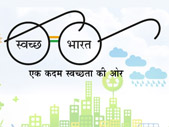Data usage in India to grow at 73 per cent CAGR by 2022: Study
 The average monthly spend on voice services in 2013 was Rs 214 compared to Rs 173 spent on data. India’s data consumption is expected to grow at a compounded annual growth rate (CAGR) of about 72.6 per cent to 10,96,58,793 million MB by 2022, according to a study.
The average monthly spend on voice services in 2013 was Rs 214 compared to Rs 173 spent on data. India’s data consumption is expected to grow at a compounded annual growth rate (CAGR) of about 72.6 per cent to 10,96,58,793 million MB by 2022, according to a study.
“With lower than ever data tariffs and increasing number of smartphone penetration in the country, which is around 40 per cent as of 2017, it is safe to assume that the Video on Demand (VoD) market will be a significant beneficiary of these developments. Internet consumption is clearly on the rise in India,” according to the ASSOCHAM-PwC study.
Data consumption in India will grow from the level of 71,67,103 million MB in 2017 to 10,96,58,793 million MB (megabytes) in 2022, growing at a compound annual growth rate (CAGR) of about 72.6 per cent, it said.
While the average Indian used to spend more on voice services than on mobile data services until 2013, the majority of an average mobile bill is now spent on data.
The average monthly spend on voice services in 2013 was Rs 214 compared to Rs 173 spent on data. In 2016, the spend on voice fell to Rs 124, while data spend rose to Rs 225, according to the report.
Video streaming constitutes roughly 65—75 per cent of the traffic, as per the Nokia Mobile Broadband Index 2018.
While internet penetration is increasing in India, with mobile internet penetration set to reach 56.7 per cent in 2022 from a mere 30.2 per cent in 2017, connectivity and consistency in speed issues need to be addressed, said the study titled ‘Video on Demand: Entertainment reimagined’.
It further said that in a country where approximately 65-70 per cent of the population resides in rural areas, no service meant for the masses can afford to ignore this market.
Internet connectivity and speed issues are significant in rural areas as against urban areas. It is important for OTT (over-the-top) players to cater to the rural market if they wish to stay relevant. Thus, apps like YouTube, which support low Internet connectivity, will be able to penetrate faster into rural areas, according to the study.
The report also noted that there has been a value shift to platforms.
“Social media and technology platforms, instead of content creators and packagers, have emerged as the primary beneficiaries of the increase in user time and spending,” it added.
Another major aspect in the journey of OTT players will be the ability to personalise experiences. Emerging technologies would help companies create unique experiences that add value to the services provided to users. (Source: The Hindu BusinessLine)
 Besides helping the Ministry in running community training courses and track their performance, it also provided video-based learning for users. Microsoft India has joined hands with the Union Ministry of Housing and Urban Affairs (MoHUA) to roll out its cloud-based solution Project Sangam to train stakeholders on Swachh Bharat e-Learning Portal.
Besides helping the Ministry in running community training courses and track their performance, it also provided video-based learning for users. Microsoft India has joined hands with the Union Ministry of Housing and Urban Affairs (MoHUA) to roll out its cloud-based solution Project Sangam to train stakeholders on Swachh Bharat e-Learning Portal.

 RUSSIA-INTERNET-Thousands of Russians protest against internet restrictions. MOSCOW: Thousands of people took to the streets of Moscow and two other cities on Sunday to rally against tighter internet restrictions, in some of the biggest protests in the Russian capital in years.
RUSSIA-INTERNET-Thousands of Russians protest against internet restrictions. MOSCOW: Thousands of people took to the streets of Moscow and two other cities on Sunday to rally against tighter internet restrictions, in some of the biggest protests in the Russian capital in years.
 The average monthly spend on voice services in 2013 was Rs 214 compared to Rs 173 spent on data. India’s data consumption is expected to grow at a compounded annual growth rate (CAGR) of about 72.6 per cent to 10,96,58,793 million MB by 2022, according to a study.
The average monthly spend on voice services in 2013 was Rs 214 compared to Rs 173 spent on data. India’s data consumption is expected to grow at a compounded annual growth rate (CAGR) of about 72.6 per cent to 10,96,58,793 million MB by 2022, according to a study.
 The move comes after High Court on Friday junked Trai’s move to cut porting fee by 80%. Mobile number portability (MNP) service providers Syniverse Technologies India and MNP Interconnection Telecom Solutions India will push to recover an estimated Rs 120 crore from telcos after a court quashed the regulator’s decision to slash a key porting fee by 80% over a year ago.
The move comes after High Court on Friday junked Trai’s move to cut porting fee by 80%. Mobile number portability (MNP) service providers Syniverse Technologies India and MNP Interconnection Telecom Solutions India will push to recover an estimated Rs 120 crore from telcos after a court quashed the regulator’s decision to slash a key porting fee by 80% over a year ago.






